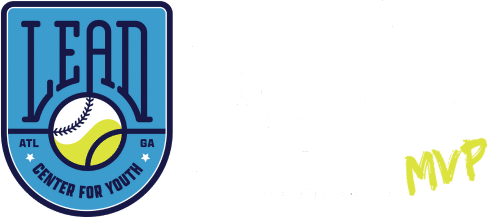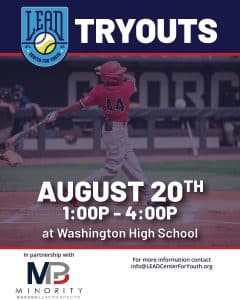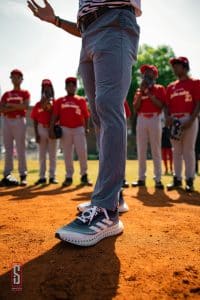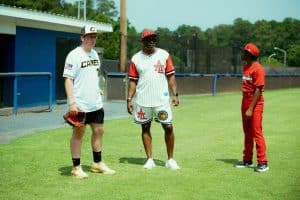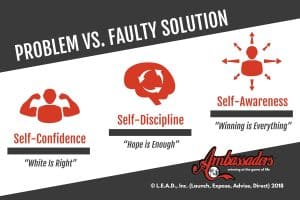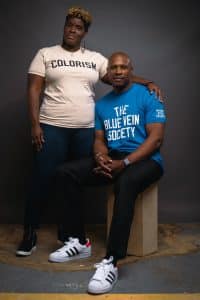
As Jay-Z once said, “I’m not a businessman, I’m a business, man.”
August is “National Black Business Month.” My wife, Kelli, and I have been business owners in the baseball industry for over 25 years. We are innovators and trendsetters taking seriously the calling that God has for our lives.
We have helped develop hundreds of players who have excelled at all levels of baseball, including the Major Leagues. For two years, we even represented 10 clients in the MLB Draft—six of whom reached the Majors.
We did this through our for-profit, Diamond Directors, while at the same time establishing our award-winning, sports-based youth development organization, L.E.A.D. Center For Youth.
Being a Black business owner is not easy because oftentimes, we do not receive the benefit of the doubt, respect or trust from varying races of people.
My success as a coach is rooted in my spiritual gifts, life experiences, my partnership with Kelli, my core values, my mentors and coaches.
Having these six things protects me from wearing myself out. I am not trying to be 10 times better than others.
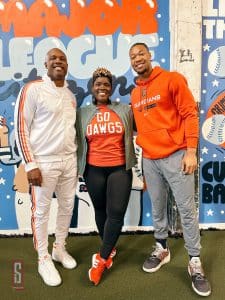 Speaking of the number 10, I have a list of 10 Black owned businesses who have inspired me to be my best self.
Speaking of the number 10, I have a list of 10 Black owned businesses who have inspired me to be my best self.
Know Your Truth?
iSmooth Media
Humble Beginnings
Cruvie Clothing
Minority Baseball Prospects (MBP)
The Players Alliance
Rodney Scott’s BBQ
Slim + Husky’s Pizza
Be the Bridge
404 Coffee
For more information, visit L.E.A.D. Center for Youth today. Also, check out our Digital Magazine.
C.J. Stewart has built a reputation as one of the leading professional hitting instructors in the country. He is a former professional baseball player in the Chicago Cubs organization and has also served as an associate scout for the Cincinnati Reds. As founder and CEO of Diamond Directors Player Development, C.J. has more than 22 years of player development experience and has built an impressive list of clients, including some of the top young prospects in baseball today. If your desire is to change your game for the better, C.J. Stewart has a proven system of development and a track record of success that can work for you.
